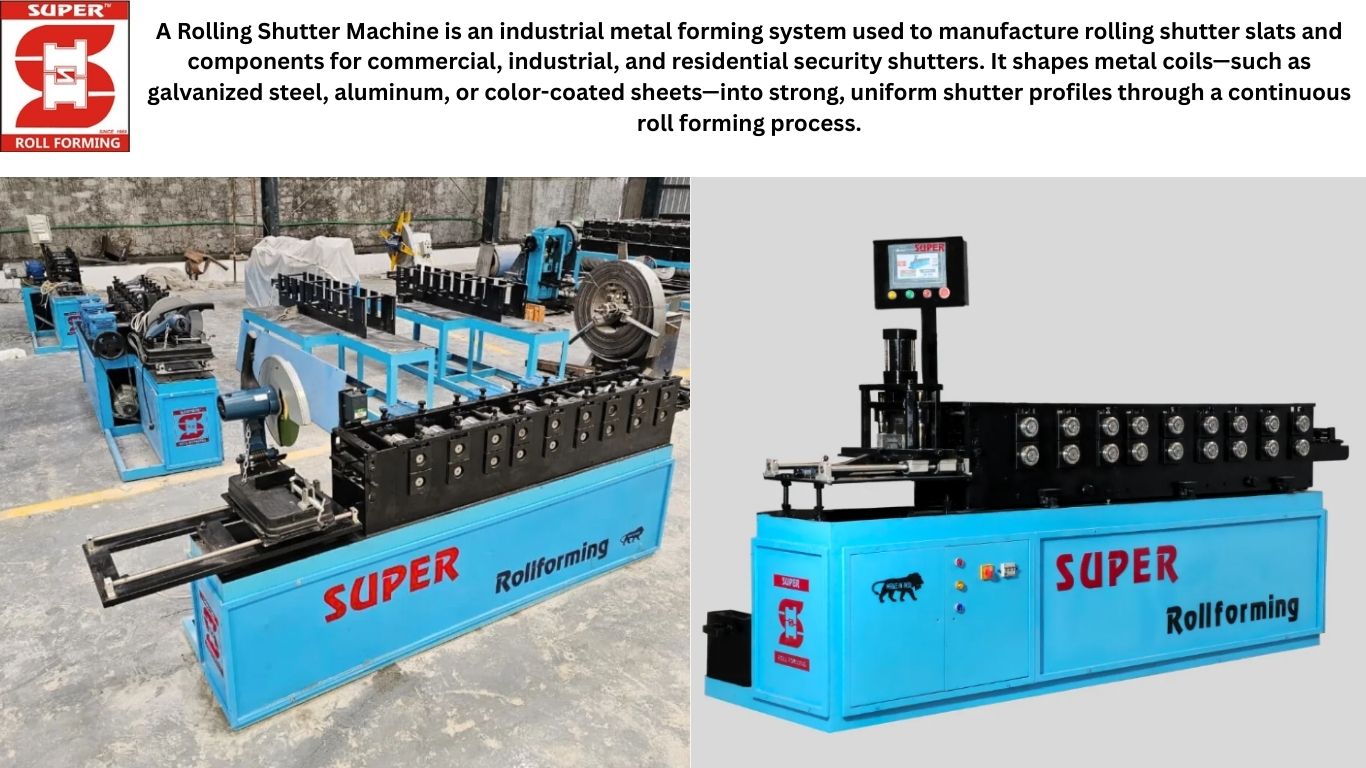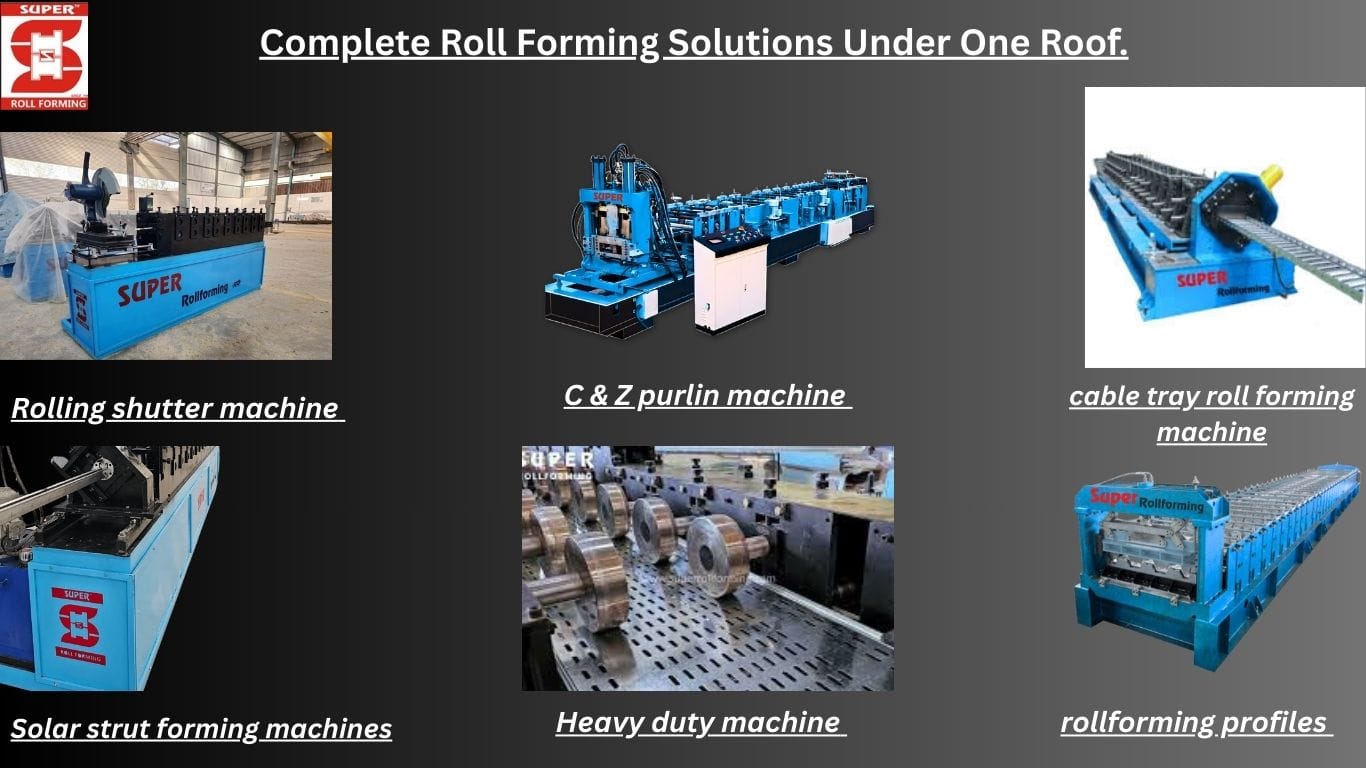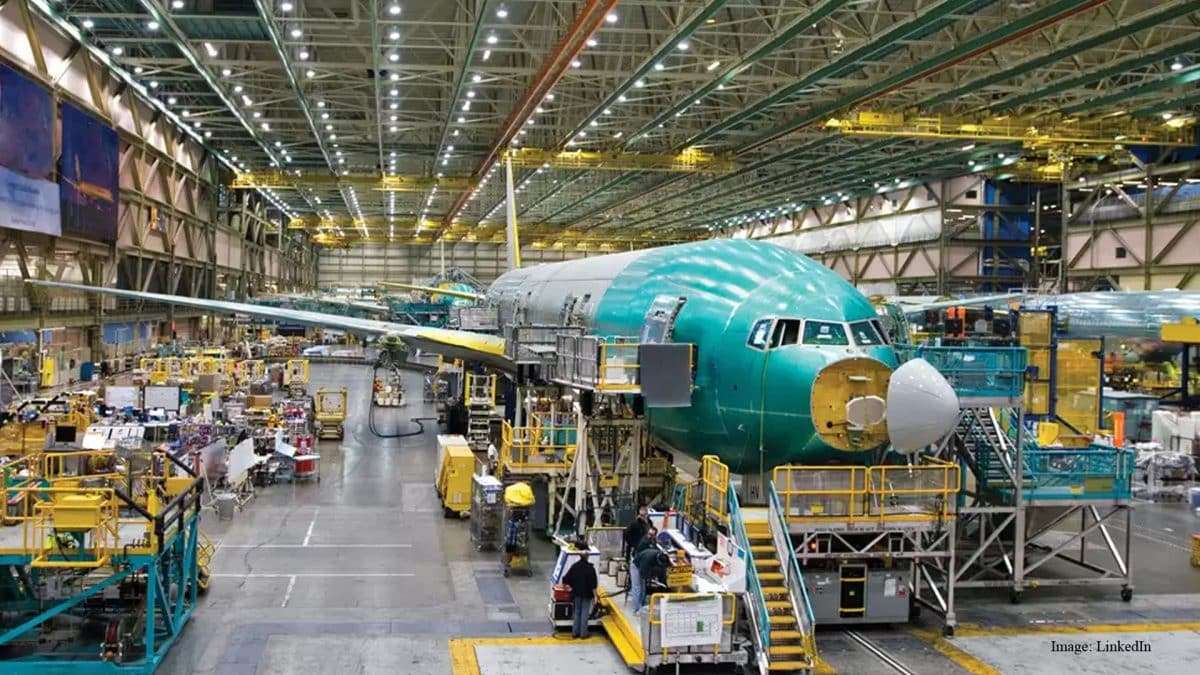In the aerospace industry, optimizing performance, efficiency, and durability is crucial. With the growing demands for lightweight, strong, and reliable aircraft components, engineers are constantly seeking innovative manufacturing processes that can meet these needs. One such process is custom roll forming, which delivers high-quality metal components in various shapes and profiles, providing a robust solution for the challenges faced in aerospace manufacturing.
Super Rollforming, a leading manufacturer of custom roll-formed products, offers top-quality metal components tailored to the aerospace industry’s stringent requirements. With its advanced production capabilities and industry expertise, Super Rollforming helps aerospace manufacturers develop cutting-edge aircraft components that improve performance, efficiency, and durability while adhering to industry standards.
In this blog, we will explore the applications, benefits, and material considerations of incorporating custom roll forming into aerospace manufacturing.
Applications of Custom Roll Forming in Aerospace Manufacturing
Custom roll-formed products provide versatile solutions for a wide range of aerospace applications. Here are some of the critical areas where custom roll forming enhances aircraft design and manufacturing:
Aircraft Structural Elements: Custom roll forming is used to fabricate essential structural components such as stringers, stiffeners, and longerons, which strengthen the aircraft’s airframe while minimizing weight and material waste.
Interior Components: Roll-formed products are ideal for manufacturing lightweight interior parts like seat tracks, window frames, and luggage bins. These components contribute to passenger comfort and reduce aircraft weight.
Exterior Surfaces and Trim: Roll-formed components can be used for aircraft exterior applications, such as skin panels, wing leading edges, and tailplane components. They ensure precise fitting, aerodynamic efficiency, and structural integrity.
Ducting and Cable Management Systems: Custom roll forming also allows the creation of efficient ducting systems for ventilation, heating, and cooling requirements. Additionally, roll-formed products are perfect for designing cable management systems that keep aircraft wiring organized and protected.
Material Considerations in Aerospace Custom Roll Forming
The choice of materials plays a crucial role in aerospace custom roll forming. Here are the primary materials used in the process:
Aluminum Alloys: Lightweight with a high strength-to-weight ratio, aluminum alloys are widely favored in aerospace for their corrosion resistance and fuel efficiency.
Titanium Alloys: Known for their strength and heat resistance, titanium alloys are perfect for high-stress components and high-temperature applications. Although more expensive than aluminum, they offer superior durability.
High-Strength Steel Alloys: Steel is used for specific components requiring high stiffness, such as landing gear parts. Steel alloys are also used in aircraft fasteners.
Material Finishes: Custom roll-formed components often need protective finishes and coatings to safeguard against environmental exposure and corrosion, ensuring long-term performance.
Benefits of Custom Roll Forming in Aerospace Manufacturing
Integrating custom roll-formed products into aerospace manufacturing offers several key advantages:
Design Flexibility: Custom roll forming allows the creation of complex shapes and profiles that meet the unique requirements of aerospace applications, helping engineers design next-generation aircraft components.
Precision and Consistency: The process delivers highly precise and repeatable results, ensuring every component produced meets the required tolerances and specifications.
Material Savings and Reduced Waste: The efficiency of custom roll forming minimizes material waste, leading to lower manufacturing costs and more sustainable production practices.
Rapid Prototyping and Adaptability: The process enables the quick development of prototypes, allowing aerospace manufacturers to adapt to changing industry demands quickly.
Super Rollforming’s Contribution to the Aerospace Industry
Super Rollforming is committed to driving innovation in aerospace manufacturing by offering custom roll-formed products that meet the industry’s highest standards.
Industry Expertise: With extensive experience, Super Rollforming provides invaluable insights into integrating custom roll-forming solutions into aircraft manufacturing.
Advanced Production Capabilities: Super Rollforming’s cutting-edge facilities produce high-quality roll-formed components that meet strict aerospace industry standards.
Quality Assurance: Ensuring the highest standards of quality, Super Rollforming delivers custom roll-formed products that guarantee reliability, performance, and durability.
Ongoing Innovation: Super Rollforming stays at the forefront of aerospace manufacturing, continuously evolving its custom roll forming solutions to support the industry’s changing needs.
Conclusion
Custom roll forming plays a vital role in enhancing the performance, efficiency, and durability of aerospace components. By partnering with Super Rollforming, aerospace manufacturers can take advantage of innovative, custom roll-formed products that drive breakthroughs in aircraft design and manufacturing. Together, Super Rollforming and the aerospace industry are shaping the future of aviation with cutting-edge, reliable solutions.






